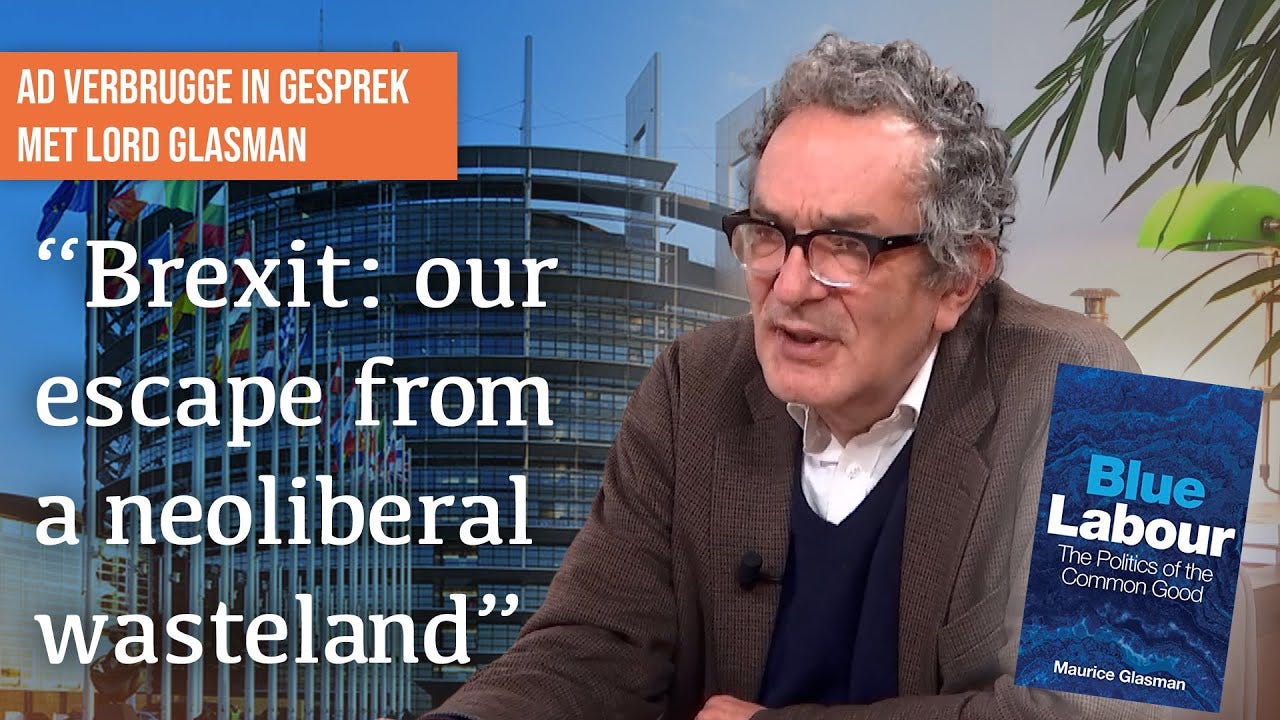At the beginning of December my old Times colleague and Conservative commentator Tim Montgomerie noisily defected to the British Union of Faragists. Tim is a good if tortured soul and his obviously sincere decision took him to just about every political talk show and podcast in the country.
I saw and heard several of his appearances in which he explained that what had pushed him out of the party in which he had spent almost all of his adult life was the issue of immigration. In 2010, he reminded all his various interlocuters, the Conservatives had come to power (albeit in coalition) on the promise of limiting net inward migration to 100,000 a year. In the 14 years since then it had continually suggested that it was a party committed to lower immigration, and in that same time net inward migration had risen to record levels.
And had not (Tim asked) the British electorate voted for Brexit in large part to stop the free movement of labour thus leading to significantly reduced future arrivals? The gap between the promised ambition and the actual outcome represented to Montgomerie a “betrayal” of the voters which he could no longer stomach. With great sorrow etc he was now joining the only party that he believed would make good on the original promise.
The question unasked and unanswered
I may have missed the exception, but in not one of the interviews with Montgomerie was he asked WHY he thought the Conservatives had failed to deliver on this promise. Which was odd because it was the only question worth asking. How had governments containing such loud and determined “migration-sceptics” as Dominic Raab, Priti Patel, Suella Braverman, Lord Frost, Liz Truss, Theresa May, Kemi Badenoch and Robert Jenrick managed so egregiously to disappoint those who had supposedly voted for them on the basis of their commitments to reduce immigration? Find the answer to that and you might begin to unlock the truth about what another former Times colleague of mine, Camilla Cavendish in a column for the FT at the weekend called “the trade-offs and practicalities” of migration reduction.
Cavendish had sat through part of the huge and expensive New Right love-in held last week in London’s Excel centre under the well-funded auspices of the Alliance for Responsible Citizenship (of whom more in another post), and noted what she thought were the movement’s weaknesses (the bombastic narcissism of Jordan Peterson) and its strength – its anti-migration stance. A stance, she wrote, which united figures such as Nigel Farage and the suddenly resurrected guru of “Blue Labour” Lord Maurice Glasman - who enjoyed a brief spotlit media moment in 2011 at the same time as such dubious ephemera as Philip Blond (Red Tories) and – God help us – Steve Hilton.
More on Glasman on Sam Freedman’s excellent Substack here:
Cavendish’s argument was to defend ground by conceding ground. “Our politics”, she wrote, “is now being rocked by the voters who were ignored by a university-educated political class. They can’t be parodied as just bitter old white men.” Now even Labour in the shape of the PM’s chief of staff, Morgan McSweeney, was being influenced by Glasmanism.
So Farage and Glasman agree on one thing:
Britain needs a robust policy on illegal and legal immigration that lets us know who’s here and lets us control our borders. That is, I suspect, the way to take the heat out of so much of our politics. Let’s have a debate about the trade-offs and the practicalities of that. But let’s not learn the wrong lessons from across the pond.
It may be that Cavendish was looking to redress the problem I began with - the failure to ask why rhetorically immigration-limiting governments had presided over record immigration. So we should have a debate which looks at why it has been felt either to be disadvantageous or impractical to take the actions which would deliver the so-long-desired reduction.
So then, debate already
I was tempted to spend an hour looking up old columns of mine to see if I had ended many of them by calling for a debate. Like “robust” it’s a good chunky two-syllable word which seems very clear but in fact is used so variably it can mean all kinds of things. “Robust” has synonyms ranging from “tough” to “healthy” and invoking a “debate” should now I think only be used if the author specifies who is to do the debating, where they are to do it, and what the proposition is that they are to debate.
For my part I’m reasonably clear on the main reason why government has failed to reduce inward migration significantly. Which is that they have known all along that to do so would constitute a substantial act of national self-harm.







